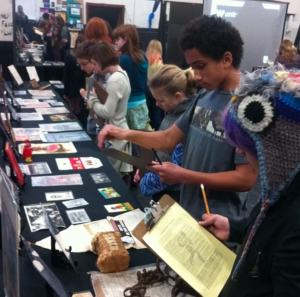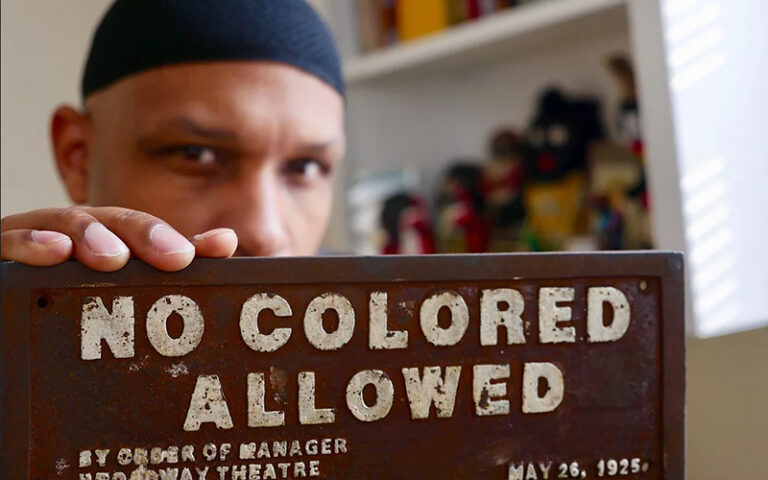“Why do some white people think they’re better than Black people?” This was the opening question asked by a five-year-old in the audience who had gathered to hear from Dr. Khalid el-Hakim, founder of the Black History 101 Mobile Museum.

For more than a decade, the mobile museum has traveled across the country to over 500 locations, bringing unique artifacts to people who might otherwise never see them. The collection spans from trans-Atlantic slavery to modern music and offers views into the horrors and triumphs experienced by Black Americans.
During Spring 2022, the museum visited 40 locations from Oregon to North Carolina, providing an accessible, inclusive opportunity to learn to hundreds of people. el-Hakim often displays the collection in non-traditional museum spaces like classrooms and libraries, “providing a ‘safe space’ to have honest conversations about race and social justice.”
Over 30 years, el-Hakim has amassed a collection of more than 10,000 artifacts from categories like science to civil rights. Visitors are often impressed to see the signatures of famous early Black Americans like Frederick Douglass, Booker T. Washington, and Mary McLeod Bethune, who have traditionally been underrepresented in American history books.
How can you increase access within your community?
- Contact the Museum to see when they’ll be in your area
- Bring primary sources to discussions of slavery, the Civil Rights movement, and other historical contexts
- Create a quote museum that challenges traditional ideas about a topic and values diverse voices
- Use hip-hop, jazz, and other forms of music to encourage scholars’ creativity and collaboration
by Laura Mann, Former Director of Marketing & Communications
Check out CT3 Education programs such as No-Nonsense Nurturer, Real Time Teacher Coaching, and Real Time Leadership Coaching to find out more about Professional Development for Teachers and Leaders, classroom management strategies, and building relationships with students and their families, and properly addressing different issues in the classroom/school.
Category: Anti-Racism


